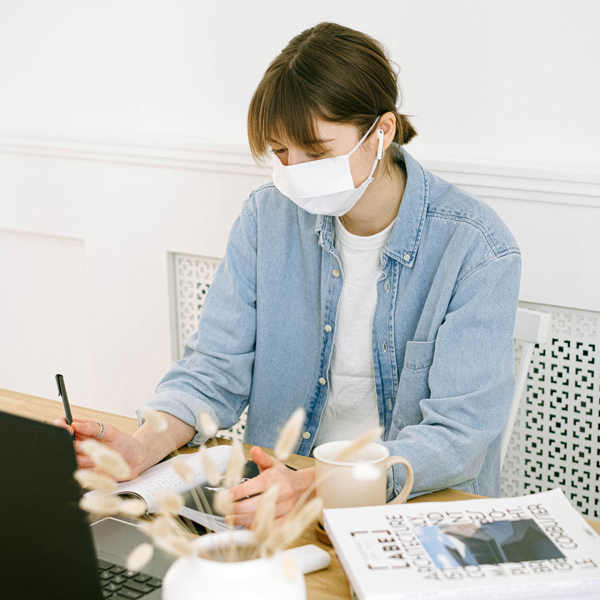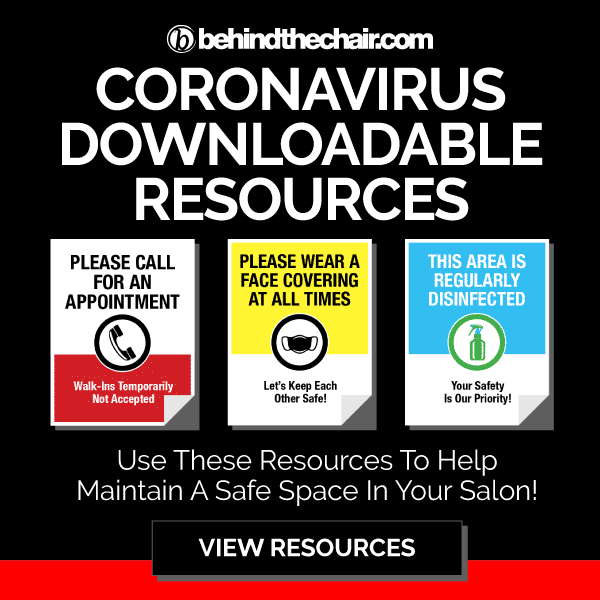Independent Contractors and COVID-19 Liability: What You Need To Know
Know Your Risks As A Business Owner When It Comes To Independent Hairstylists
1099 Employees and COVID-19 Liability
Do you own a booth rental salon and have concerns about how to protect your business from COVID-19 lawsuits? The coronavirus pandemic is unprecedented and can be confusing, so BTC did some research to help you understand how to protect your business and the independent contractors who work at your business—keep scrolling for the info!
Disclaimer: The information in this article is provided for informational purposes only, and should not be construed as legal advice on any subject matter. You should not act or refrain from acting on the basis of any content included in this article without seeking legal or other professional advice.
Almost 3,000 coronavirus-related lawsuits have been filed in the U.S. as of mid-June, according to law firm Hunton Andrews Kurth. While the majority were brought by businesses over insurance coverage, there are cases filed claiming lack of personal protective equipment (PPE), exposure at work, wrongful death or personal injury.
There are steps you can take as a business owner to protect yourself against potential suits from customers—click here to read more about clients and COVID-19 liability—but when it comes to independent contractors, things get a bit trickier. The bottom line is that it’s in your best interest as a business owner to protect yourself.
Looking for info on employees and COVID-19 liability? Click here to read what you need to know!
COVID-19 Liability Situations With Independent Contractors
If the hairdressers in your salon are classified as 1099 independent contractors (they are self-employed and simply rent space in your salon), COVID-19 liability could have expensive consequences if you don’t follow guidelines from federal, state and local authorities.
Make Sure Workers Are Classified Correctly
If an independent contractor meets your state’s requirements for an employee (and should receive a W-2 instead of a 1099), you may not avoid liability if you weren’t sure how the employee should actually be classified. Talk to your attorney or an employment expert if you need clarification.
Review Existing Contracts
Any contracts between you and an independent contractor probably already contain indemnification provisions in favor of you, the employer, so review those contracts with your attorney.
Amend Contracts If Needed
Because the coronavirus pandemic is unprecedented, contracts likely won’t cover this specific situation, but there could be language or “gray areas” and you may decide to attach addendums or waivers to contracts with 1099 workers. In some cases, company-wide notices may, legally speaking, act as appropriate notice for 1099 workers, but again: It’s very important that you consult with your attorney.
Should You Ask 1099 Workers to Sign a COVID-19 Liability Waiver?
It may be smart to have 1099 workers sign a COVID-19 liability waiver to limit liability for claims. This waiver could be incorporated into existing contracts and should include:
- Assumption of risk
- A agreement not to sue
- Indemnification
For specific language or more information, talk to an attorney.
How To Protect Your Salon From COVID-19 Lawsuits
The best defense against any COVID-19 claim is to give the independent contractors working in your salon what they need to safely do their jobs—and to document your actions. If you closely follow federal, state and local recommended workplace safety practices, the risk of claims against your business will be lower. An executive order signed by the President in May also instructs government agencies to essentially “go easy” on businesses making a good-faith effort to follow federal best practices and guidelines for minimizing risk.
However, it is impossible for you to completely stop the coronavirus entirely, so it’s super important that your salon policies are well-documented.
Follow all applicable guidance.
- Start with the Centers for Disease Control & Prevention (CDC) guidance and then any state or local guidance on recommendations or requirements for reopening and conducting business.
- Follow these guidelines and be sure to update your policies and procedures as these guidelines are updated. This also means ensuring constant compliance with guidelines.
- Remember: While COVID-19 claims are a gray area now, they won’t be forever. It is possible that the CDC guidelines will become the baseline requirement for workplace safety claims.
Talk to and train independent contractors.
- Educate everyone working in the salon space about how to minimize the risk of spreading COVID-19 and document all policies, procedures and training sessions.
- Keeping everyone informed about your steps as a business owner not only helps your defense in the event of a potential claim—it also fosters a sense of transparency and trust.








